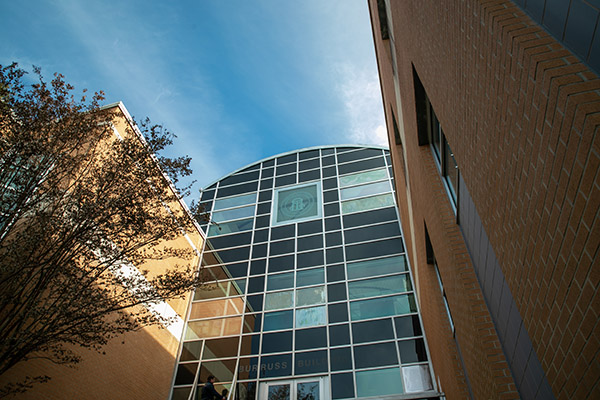The district’s special purpose local option sales tax for education, SPLOST IV, began collecting funds in January 2014 and is set to expire at the end of 2018. The district is projected to collect $717.8 million during that span, while Marietta City Schools is projected to collect $55.4 million.
Through August of this year, the 1 percent sales tax has netted nearly $198.1 million for the county school district — 6.4 percent less than the estimated $211.7 million the county had expected to receive by this time.
That shortfall is due to a slower performance in the economy and possibly due to revenue projection estimates that are slightly off, said Brad Johnson, the district’s chief financial officer. Those projections, he said, were made in the summer of 2012 by the firm that helped plan the SPLOST notebook, Education Planners, as well as the Georgia State University Fiscal Research Center, and were based on economic conditions at the time.
Marietta City Schools has collected $15.5 million in SPLOST revenues through August, which is 5 percent less than the $16.3 million officials had expected to collected, said Erin Franklin, the district’s finance director.
Braves weren’t factored in
The economy is in a timid period of inflation as well as growth, said Roger Tutterow, an economics professor and director of the Econometric Center at KSU. Because of that, the base against which the sales tax is levied has grown at a slower rate than many would have anticipated.
“This economy continues to grow, but it continues to be a little bit of a source of frustration in that the pace of growth is a little bit more moderate than many hoped,” Tutterow said.
But school system leaders believe the shortfall could be made up in the coming months thanks to several factors, including the 2017 arrival of the Atlanta Braves. The Braves’ move to Cobb was announced in November 2013 — more than a year after officials made projections for SPLOST IV and about six months after voters approved the 1 percent sales tax.
“That economic activity, obviously, was not incorporated into the projections, because no one knew that the Braves would come here when these projections were made,” said John Adams, Cobb’s deputy superintendent. “We certainly would have hoped to have collected right at the projected amounts, but we think, and we’re cautiously optimistic, that the economic activity generated by the Braves stadium — all the construction related to that and the stadium itself — we’re cautiously optimistic that that will make us whole, so to speak, on the back end.
“It’s not just ticket sales and beer and hot dogs when the stadium’s open, but every time a construction worker stops to have a cup of coffee at a Cobb County place along the way, (or) getting gas in his truck, having lunch or dinner, it’s all that stuff, and then all the businesses in the area that are going to be ramping up over the course of the year or two prior to the stadium opening — all of that is going to have an impact,” Adams added.
Theater criticism
Cobb school board Chairman Randy Scamihorn said he believes other unexpected happenings, such as a new company moving to Cobb or a neighboring county, also could have a positive impact on sales tax revenues. Population increases could move the needle in the right direction for the district’s collections, as more county residents would likely lead to more purchases being made in the county.
The drop in SPLOST revenues has been cited in recent days as part of criticism against a Cobb school board decision last month to add an estimated $3 million worth of work to a slate of additions and renovations to North Cobb High School.
The increase stems from revising plans for a 750-seat theater to one that would have 1,100 seats — a recommendation made by Scamihorn, who represents the area. Scamihorn’s amendment also included designating the new North Cobb theater as a district-wide facility, making it available not only to the school, but also to other district schools and community functions.
Scamihorn said the current shortfall was “minor” and can be made up before the end of SPLOST IV in 2018.
“When SPLOST III was started, it was 23 percent under projected collections when the expansion of the Lassiter concert hall was made and approved by the board. And yet (board members) approved that project,” he said.
No projects on the chopping block yet Adams said it was “too early” for district leaders to determine if the SPLOST shortfall will ultimately lead to cutting projects on the SPLOST list. Projects on the list are kept in what the district calls its SPLOST notebook — a “big, thick binder” with details on each project — and officials look at revenues and other data to determine which projects to tackle and when.
“Our SPLOST department constantly has a one-year advance look at things based on cash flow from the prior year, how much is in the bank, and how much they think they’re going to get over the course of the next year. We constantly prioritize and re-evaluate what project we think ought to be next within the constraints of our cash flow,” Adams said. “Although we certainly intend to do everything in the SPLOST notebook, those are good faith planning estimates, and we occasionally have to adapt to situations and do what’s in the best interests of the students and the schools. Right now, we’re carefully monitoring cash flow, which you have to do in any SPLOST, because it’s ‘pay as you go. Because it’s running 6.4 percent short to date, we’re having to monitor our cash flow a little more carefully and will keep an eye on things.”




















